Underwater Metal Detecting
Underwater Metal Detecting
The first step in your Underwater Metal Detecting journey is to define the water depth you’ll be searching. Most detectors will have a waterproof coil and cable. Get a little deeper, say to your chest and you’ll need to think about a detector with a waterproof processor. If you plan to go all the way under your going to get into a combination of scuba and specialty metal detecting equipment.
Types of water metal detecting
Water detecting, much like detecting for gold, is a whole new game. but there’s a big change in the equipment and techniques that you need for success.
This type of hunting gets you, at most, knee deep in the water, keeping the control box dry. Then a sand scoop helps you find the target.
Here you need a waterproof detector, snorkeling gear, and possibly a wet suit. At this level, detecting techniques require a new set of hunting skills and specialized equipment.
Scuba or skin diving, is another level of complexity, where you may be swimming under water using fins and a hand-held detector. We will call this Underwater Detecting. Scuba diving is an even more specialized activity, but it is distinct sport in itself .
There’s not much extra equipment you’ll need for ankle deep detecting. Most coils are waterproof, and most detectors have a mode or setting or beaches. If your detector does not have a beach setting you may have to adjust the sensitivity and ground balance. Beaches, especially salt-water locations have high mineral content and ionizing salts which will affect performance.
For this type of underwater metal detecting you may want to look at shoes and socks that are specifically made for wading. The thickness and durability of the footwear will depend upon the presence of rocks in the surf and the water temperature. In cold climates waterproof boots or waders may be required. There’s more on waders below.
For sandy locations you’ll need a sand scoop. For muddy or rocky bottom water detecting you can use a shovel or digging tool, but a sand scoop may still come in handy.
If you’re hunting in salt-water conditions, you should rinse all metal parts, including zippers, with fresh water when you get home, as the salt will easily corrode your gear.
Deeper underwater metal detecting is going to require waterproof equipment. You’re probably going to want to get a dedicated detector for this. Some manufacturers and third-party producers provide clears covers that seal the control box for detectors that are not fully waterproof.
Underwater metal detecting is one of the few environments where Pulse Induction (PI) metal detectors work well. They are not known for good discrimination, but most metal you find in the surf is going to be something man-made, so you’ll want to dig up all targets.
An important feature for probing underwater is a vibration mode. You’ll be slowly sweeping the probe through water that has sand kicked-up. Sound and sight are useless underwater, you’ve got to feel the target.
Underwater Metal Detectors
Weight belts, A weight belt is needed when you’re in water that’s deep enough to make you float. Nylon weight belts are cheaper. Rubber ones doesn’t slip as much. Many divers like to add accessory D-rings to the belt, for attaching bags and other items.
Snorkels and face masks, A face mask with a snorkel is needed so you can see and breath underwater, even if it’s just for a few seconds. Typical gear of good quality are listed here.
Wet Suits are coverings that let water enter between you and the suit, but the fit is tight enough that there is little circulation, so the suit keeps you warm. Wet suits come in different thicknesses to accommodate water temperature.
Dry Suits, as the name implies, are waterproof, so air, not water, is next to your skin.
Gloves come in all shapes and sizes, with waterproof and tight fitting gloves, which is good for maintaining dexterity. Many surf searchers like webbed gloves, as these help you navigate in water, and by waving a hand over the target area you can whisk away sand to uncover a target.
Waders, the long boots favored by fishermen, come in all lengths and styles. Some have built-in boots and others allow you wear shoes inside. Waders are often all you need for water detecting and they are a lot less trouble to get into and out of than a wet suit. They come in different lengths, from knee high to chest high.
Miscellaneous. Once you’re actually out in the water, you’ll find there are hundreds of little things you absolutely need for water detecting. Too many to provide a comprehensive list, but items you can find at pretty much any hardware store or sports supply store.
- Lanyards, belt clips, retractable key lines.
- Mesh bags for stashing finds.
- Shark repellent.
- Detachable shafts for your detector control box.
- Knives, probes, and tweezers for extracting items from rocks and crevices.
Underwater Metal Detecting
The only difference between chest-deep detecting and underwater detecting is that you get your head wet. This requires only minor add-ons in terms of gear. You might want to add a wet suit and a weight belt as described in the previous section.
You may also want to consider the following:
- Fins to help with swimming.
- Head cover for warmth.
- Shark repellent.
Be sure to use the shorter, more manageable snorkel style fins as opposed to scuba diving fins. You can often save a little by buying the face mask, snorkel, and fins in a package deal. Have fun and be safe.
Metal Detecting While Scuba Diving
Scuba diving is profoundly different from metal detecting; so much so that it may be perceived as an entirely different sport. For the sake of brevity, I want to include just a short list of the gear you’ll need. If you’re interested in this activity it may be best to consult books and references dedicated to this sport.
Scuba diving requires a training class and certification. It’s a necessary step for your safety and enjoyment.
What follows is a short list of the types of gear you will need for scuba diving metal detecting:
- Diving masks and snorkels.
- Fins and boots.
- Weight belts and buoyancy compensatory.
- Tanks and spare air.
- Oxygen regulators, octopus regulars.
- Gauges – depth, pressure, compass.
- Dive computer.



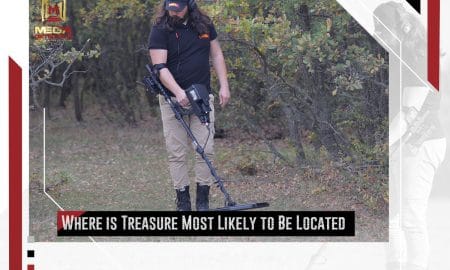


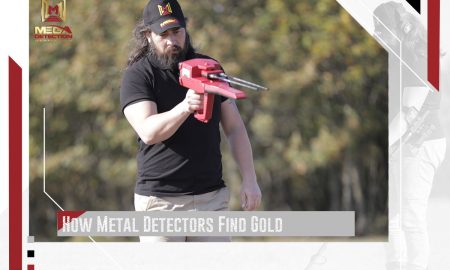

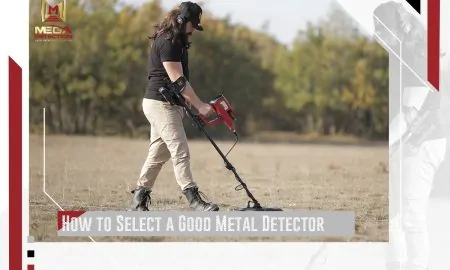
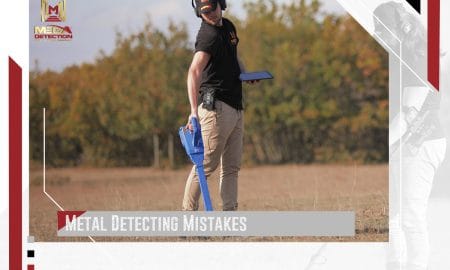

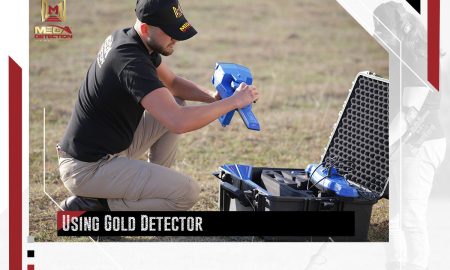
Leave a Reply